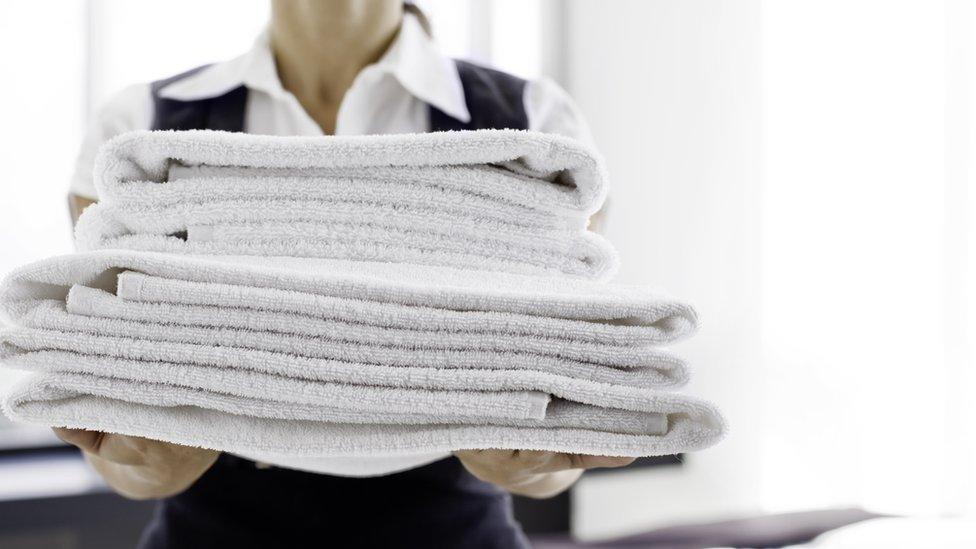Buying and selling maids online
- Published

Migrant labour in Gulf countries has long been a subject of controversy, and the system that regulates it has now spawned a black market for domestic servants who are bought and sold online.
BBC Trending has discovered that dozens of private Facebook groups are being used to circumvent local laws and regulations. Messages like these appeared recently on a Facebook group that matches maids to potential employers:
"Am looking for a maid who is on visit/tourist visa to work as a live in maid."
"Urgently need a maid even for monthly basis 1 month or 2, 3 months till I travel in December"
"Looking for live in maid Indian/Philippino to take care of 2 month old baby"
Although group moderators warn participants against breaking the law, the messages are a window into a black market that's developing online and which has resulted in investigations and prosecutions in Saudi Arabia.
BBC Trending on Facebook, external
In Saudi Arabia, as in many Gulf countries, workers from Asian and African countries can obtain visas under sponsorship system known as "kafala". The system ties immigrants, who often work as live-in maids, to their employers for the duration of their stay.
Most of the working arrangements are done through official recruitment agencies, but the black market that has developed on social media has allowed some employees and workers to circumvent the system.
"The main reason social media recruitment is attractive to employers is going through a recruitment agency can be very expensive," says Vani Saraswathi of Migrant Rights, an advocacy group based in the region. "For a contract period, you have to pay anything from $2,500 to $5,000 (£2,000 to £4,000)... if you go through social media, you don't have to pay any of this."

You might also be interested in:

Employees can potentially benefit as well - one Saudi activist and campaigner told BBC Trending that maids can potentially double their salaries if they find employers illegally online. Black market employers, freed from those expensive agency fees, can afford to offer their workers a higher rate of pay.
"Unfortunately social media made it really harder for working families to obtain help lawfully," says Nawal Al Hausawi. She says that she has previously hired maids through legal channels. "Once [a worker] enters the country legally that she will make twice as much if she breaks the contract and uses social media to find another family."
There are dozens of Facebook groups online with thousands of members putting women looking for work as maids in touch with potential employers in the Gulf - although not all of them are facilitating illegal employment. And the kafala system itself has come under intense criticism for tying workers to abusive employers and other scandals. Human rights groups say the system gives workers very little protection against mistreatment.
Gulf countries have been promising to bring in labour reforms. Last month, Qatar adopted a new law giving workers new rights including at least one day off a week and paid annual leave. Activists say the bigger challenge is implementing these new guidelines, getting rid of loopholes and adding more provisions so that new laws meet international standards.
One maid told Trending that domestic workers will often run away, and look for illegal employment, because of delayed pay, physical and emotional abuse and poor working conditions, and that maids were well aware of the market being facilitated by social media.
"Now, when you go tell somebody 'I'm looking for work', legally or illegally, the person will post your number on these [Facebook] pages," said the woman, who asked to remain anonymous so as not to jeopardise her work status. "That's how you can get work through social media… But that's illegal."
Khaled Aba Alkhail, a spokesman for the Ministry of Labour Affairs in Saudi Arabia says that the country is aware of the problem and will prosecute anyone who in effect runs illegal recruitment agencies using social media platforms. He says that in the last few months, the labour ministry investigated 90 adverts on social media and that a number of individuals involved have been prosecuted.
Reporting by Abdirahim Saeed
You can follow BBC Trending on Twitter @BBCtrending, and find us on Facebook, external.